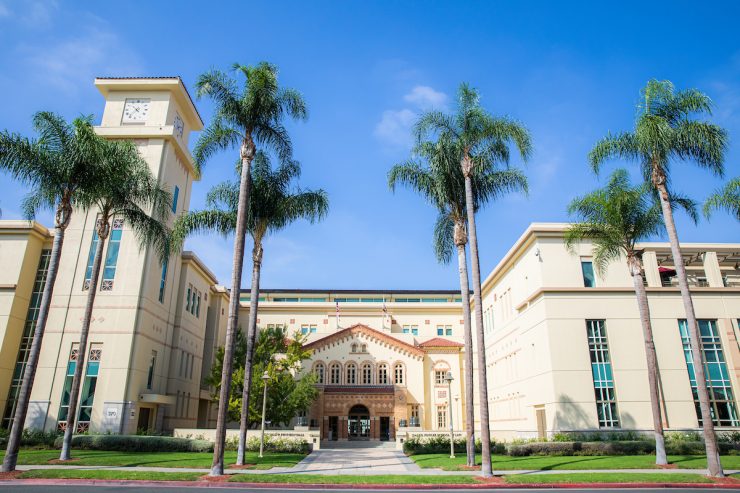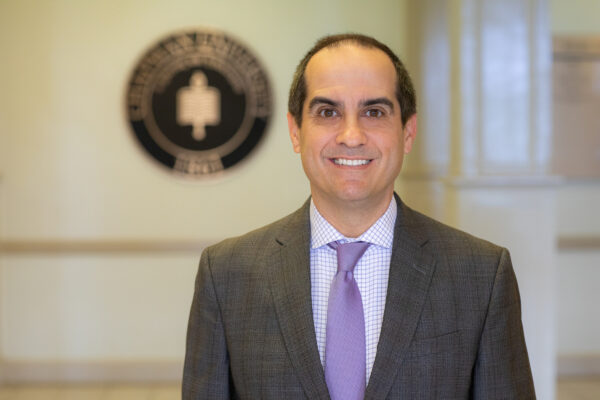The U.S. Supreme Court on Thursday struck down race-conscious policies in college admissions, ending decades of precedent that had allowed schools nationwide to use such programs to increase the diversity of their student bodies.
Chapman University offers the expertise of the following professors with immediate commentary on the Supreme Court’s decision regarding affirmative action.
From Tom Campbell, the Doy and Dee Henley Distinguished Professor of Jurisprudence at Chapman University’s Fowler School of Law
- Tom Campbell is a professor of law and a professor of economics at Chapman University. He clerked for Justice Byron R. White of the US Supreme Court the year Bakke, the first affirmative action case, was decided. He has been a tenured faculty member at both Stanford Law School and at Chapman, teaching courses in constitutional separation of powers. He was a US Congressman for five terms, and a California State Senator, resigning from the Republican party in 2016.
- Continue the conversation with Tom Campbell at 714-559-5584
“The U.S. Supreme Court’s ruling reaffirms that the guarantee that no person will be denied the equal protection of the laws applies to all, no matter the person’s race,” said Tom Campbell, the Doy and Dee Henley Distinguished Professor of Jurisprudence at Chapman University’s Fowler School of Law.
“Although the liberal and conservative majorities of the Supreme Court have differed in the last half century, no majority has favored undoing the requirement of the 14th Amendment as a remedy for societal discrimination,” he said. “In 1988, then-Justice Sandra Day O’Connor cautioned against the ‘corrosive’ influence of racial politics when the government sought to create preference programs. Improvements for all must be our goal,” he added. “Thursday’s decision offers such direction.”
From James Phillips, associate professor of law at Chapman University’s Fowler School of Law
- Phillips has worked on briefs and petitions filed in more than 30 Supreme Court cases and numerous state and federal trial and appellate courts. He writes about religious liberty, legal interpretations and Constitutional law.
- Continue the conversation with James Phillips at 510-447-0954
“With today’s ruling the Court vindicates Justice John Marshall Harlan’s 127-year old observation that our Constitution is colorblind,” said James Phillips, associate professor of law at Chapman University’s Fowler School of Law. “The ruling is generally a win for the rule of law and the principle of equality under the law. And specifically the decision is a win for Asian Americans, the group in this country who perhaps have most had to bear the burden of affirmative action.”
About Chapman University
Founded in 1861, Chapman University is a nationally ranked private university located in Southern California. Chapman is categorized by the Carnegie Classification as an R2 “high research activity” institution and offers personalized education to more than 9,000 undergraduate and graduate students. The campus has produced a Rhodes Scholar, been named a top producer of Fulbright Scholars, and hosts a chapter of Phi Beta Kappa, the nation’s oldest and most prestigious honor society. Based in the City of Orange, Chapman also includes the Harry and Diane Rinker Health Science Campus in Irvine. In 2019, the university opened its 11th college, Dale E. and Sarah Ann Fowler School of Engineering, in its newest facility, Keck Center for Science and Engineering. Learn more about Chapman University: www.chapman.edu.
###
Media Contact:
Cerise Valenzuela Metzger, Director of Public Relations | cmetzger@chapman.edu | 714-289-3143
Carly Murphy, Public Relations Coordinator | carmurphy@chapman.edu | Desk: 714-289-3196 | Mobile: 714-497-9683




